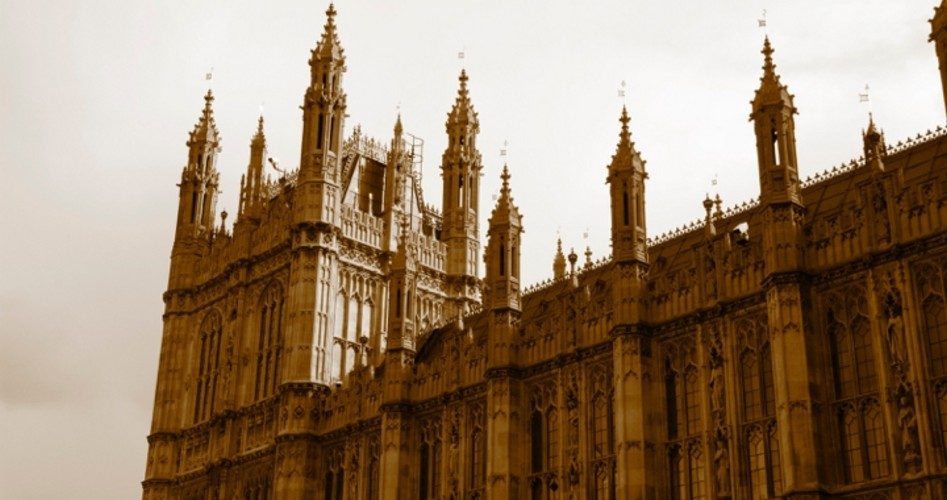
Podcast: Play in new window | Download ()
Subscribe: Android | RSS | More
Yes, the Queen of England still plays some role in British politics.
Queen Elizabeth II has granted a request by Prime Minister Boris Johnson to suspend Parliament ahead of the October 31 date for Great Britain to leave the European Union. The highly controversial move will allow far less time for parliamentary debate ahead of the new deadline and increases the odds of a no-deal Brexit, which some claim would be disastrous for Great Britain’s economy.
The move was announced after the Queen met at Balmoral with members of the Privy Council, a formal body of advisors to the monarch. The three members of the council who met with the Queen included prominent Brexiteer and Lord of the Council Jacob Rees-Mogg, as well as Baroness Evans and MP Mark Spencer.
Parliament is currently on its summer break and is scheduled to reconvene on September 3.
The Queen’s statement read: “It is this day ordered by Her Majesty in Council that the Parliament be prorogued on a day no earlier than Monday the 9th day of September and no later than Thursday the 12th day of September 2019 to Monday the 14th day of October.”
On October 14, a Queen’s Speech would bring MPs back to the House of Commons, a mere two weeks prior to the leave date, leaving little time for Johnson’s opposition to either call for a no confidence vote on Johnson or pass legislation to push the leave date back yet again.
A Queen’s Speech normally occurs yearly and is a way of setting the agenda of the government for the next year. As a new prime minister — Johnson took over from Theresa May in July — a Queen’s Speech was expected as Johnson would bring his own legislative priorities to the job.
But the timing of this Queen’s Speech is what rankles opponents.
House of Commons Speaker John Bercow, an ardent remainer, said that it was “blindingly obvious [the intention was] to stop Parliament debating Brexit and performing its duty in shaping a course for the country.”
“Shutting down Parliament would be an offense against the democratic process,” Bercow concluded.
But Johnson it seems, will not tolerate any more delays of the kind which occurred last spring, when Theresa May was forced to ask the EU for an extension of the leave date from March 29 to the current October 31. “We are not going to wait until October 31 before getting on with our plans to take the country forward,” Johnson said. “That’s why we are going to have a Queen’s speech and we’re going to do it on October 14th. We are going to get on with it.”
The bold move by Johnson will give remainers, and those reticent to leave the European Union without a deal, five fewer weeks to strategize ways to prevent that occurrence. The move also gives Johnson ammunition for asking for concessions from the European Union. One belief that EU officials have maintained was that British Parliament would block any type of no-deal Brexit. With Parliament on the sidelines for five weeks, Johnson’s trump card — a no-deal Brexit — remains solidly on the table.
Currently, the EU is maintaining that the only agreement they will accept is the plan that former PM Theresa May negotiated with them. Johnson is demanding dramatic changes to that plan.
Of course, the loyal opposition was outraged at Johnson’s tactic. “Suspending parliament is not acceptable,” said Labour leader Jeremy Corbyn. “What the prime minister’s doing is a sort of smash and grab on our democracy, in order to force through a no-deal exit from the European Union. What’s he so afraid of that he needs to suspend parliament to prevent parliament discussing these matters?”
Corbyn’s strategy moving forward will be to obstruct Johnson’s cheeky move in any way he can, up to and including calling for a vote of no confidence. “The first thing we’ll do is attempt legislation to prevent what he’s doing. And, secondly, we’ll challenge him — a motion of no confidence at some point.”
But even if a no-confidence vote succeeded, Johnson could simply refuse to resign until after the October 31 deadline, making whatever Brexit he arranges a done-deal before he could be forced out.
With this move, Boris Johnson has gone all-in on his promise to deliver Brexit, one way or another, on October 31. The move will make it far more difficult for parliamentarians to sabotage Great Britain’s long overdue exit from the EU like they did back in March.
Photo: RMAX/iStock/Getty Images Plus
James Murphy is a freelance journalist who writes on a variety of subjects with a primary focus on the ongoing anthropogenic climate change hoax and cultural issues. He can be reached at [email protected].


